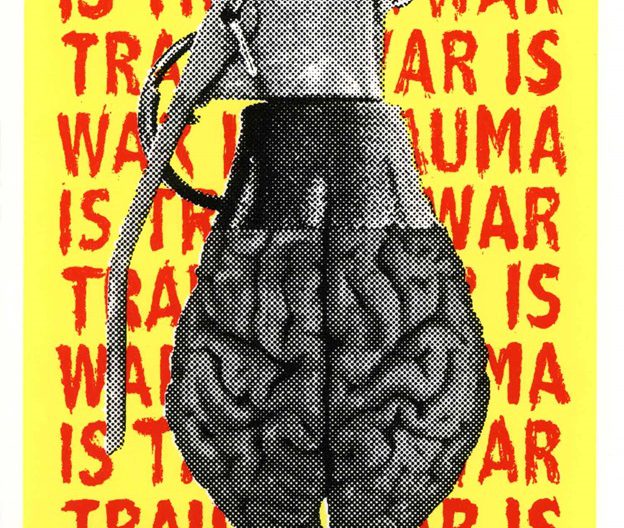
BY STAFF REPORTER
It is a commonplace knowledge that armed conflict always yields catastrophic impacts and its consequences are across-the-board on human beings, the environment and nations’ socioeconomic developments. Ranging from death, disability, and wartime sexual violence to temporary and/or long lasting physical and emotional traumas, armed conflicts affect people adversely and cause them unexpected life altering consequences.
The war that took place in the northern part of the country for close to two years has disrupted the peace and security of those people residing in war-torn areas and jeopardized their lives. It has disrupted the social fabric of a lot of people, compelled them to flee their places, and caused them severe psychological traumas, aside from the huge social and economic burden it creates on the country.
According to Ermias Kiros, a Psychologist, the two-year-long conflict occurred in the northern part of the country has hurt the psychological makeup of many people and distorted their lives. The psychological well-being of those people who were injured in the war should be treated accordingly.
Ermias, who has been offering psychological treatment for victims residing in the areas where the war has taken place and conducted an exclusive interview with The Ethiopian Press Agency, said that the war has made many people disoriented, and threatened their sense of meaningful existence.
Quite a few people have lost their healthy feeling; and many are still in bad memory. Several people can dream of dead bodies when they cover their eyes. They may be entangle with series of distressing incidents and overhear perplexing and disturbing sounds when they are trying to sleep. Even today, they could not detach themselves from the sound they heard at that time, he added.
According to Ermias, the war has jeopardized the way they see themselves and the society. It has left them with some type of psychological traumas and mental disorders. Women who were gang raped and lost their families do not only miss their families but also themselves. Thus, understanding and accepting the psychological trauma that the war has created on them, a well-organized campaign that can provide victims some level of treatment and comfort should be arranged.
Mentioning global experience and the findings of various researches that people often falling into depression after a war, the Psychologist said that however if things get worse, life becomes meaningless to them, they suffer a lot, would reach to the point they lose their mental health; and finally end up at committing suicide.
When such things happen, the effect is wide-ranging. Not only the victims themselves but also families suffer a lot and social interaction will be disrupted. The worst, it will not end up there, (harming the one with psychological disorder) but it will pass down to the generations, called ‘Transgenerational Trauma’.
To curb ‘Transgenerational Trauma’- a trauma that passes to subsequent generations and people find themselves showing the symptoms of trauma without having experienced the trauma themselves, it is necessary to work hard to make mental health care accessible for all, he remarked.
If not, a mother who underwent bad moments and developing distorted thoughts as a result of the war will pass on the disorder to their children. Owing to this war is not just a one-time incident but an event its impacts extends to the next generation. This, in turn, brings about devastative consequences to the country in the long run.
Saying that he has been providing voluntary service for people displaced and affected due to the war in Mekele, Kombolcha, Dessie, Haik and Gondar areas, he said as any of the war-torn places across the world, the conflict break out in the northern part of the country has affected the psychological makeup of the people.
Therefore, not to let the war blemish the healthy interaction of the communities, to maintain and restore the social fabric of the society, works should be carried out in advance.
“A person is a person through his real mind. If he/she loses his eyes, life goes on. Even his/her hand or leg is amputated, life continues. However, if his mind is affected and disturbed, the consequence is distressing. Not only the life of that person, but also at society level,” he said.
It is clear that mental health is the most important aspect and an element that is decisive to overcome the challenges that Ethiopia is in at this particular time. The Psychologist said that while he was working with the community, he saw people who have lost hope.
He also witnessed children who pleaded their parents not to go out of their houses fearing not to lose them, and children ageing from 11, 12 and 13 years old; but who tend to be restless; and bedwetting owing to the psychological trauma caused by the war.
Recalling that an amazing work has been done through campaign to encourage mothers to give birth in health facilities, he said that in the same manner, making mental health an agenda and supporting health centers and hospitals to have space for psychiatric treatments is pivotal to register meaningful achievement on the matter. Making mental healthcare accessible and working aggressively in this regard is crucial.
According to him, unless the required attention is given to the problem, the situation will get worsen and the future will be more frightening than now.
As to the estimation by the WHO, in the situations of armed conflicts throughout the world, 10 percent of the people who experience traumatic events will have serious mental health problems and another 10 percent will develop behavior that will hinder their ability to function effectively. The most common conditions are depression, anxiety and psychosomatic problems such as insomnia, or back and stomach aches.
THE ETHIOPIAN HERALD THURSDAY 17 NOVEMBER 2022





